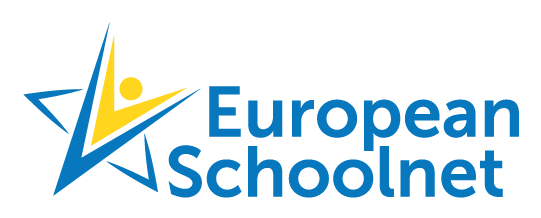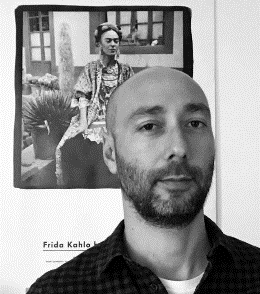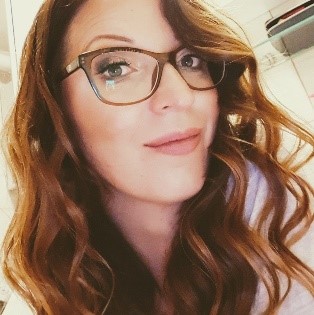Cultural heritage has a crucial role to play in education. While languages, syllabi and curricula may change across the globe, the challenging need to look at the past to understand the present is shared among generations and it is universal.
With the aim of increasing digital cultural data as a trusted primary source – essential in this era of disinformation – to implement innovative pedagogies, the Europeana “Digital Education with Cultural Heritage” MOOC empowers teachers and educators to use digital technologies, essential to develop learners' 21st century skills. This online course will explore the educational potential of digital cultural heritage, improving teachers’ and educators’ understanding so they can efficiently integrate it into their lessons and practices, regardless of the subject they teach. The final goal is to design engaging and deep-learning content for students, museumgoers, or lifelong learners to prepare them as active and responsible citizens with key competencies to thrive in life.
This MOOC makes use of Europeana’s digitised collection of cultural heritage and content from the Teaching with Europeana blog, where participants will find resources in multiple formats (such as pictures, videos, texts, 3D) and multiple languages, various tools like Transcribathon and Historiana and other ready-made materials that they can easily integrate in their educational activities. Moreover, the course will introduce the learning scenario template and guide participants to use it and build their own. To help participants, the course offers a selection of videos with tested learning scenarios designed by educators from different countries.
Additionally, this course will foster the employment of innovative pedagogical approaches and facilitate open schooling and hybrid spaces for education by connecting museums, libraries, and other cultural institutions with schools through educational activities based on cultural heritage assets.
Prerequisites
Teachers in primary and secondary compulsory education, VET and special education of any subject, museum educators, and any other CHI professional (like librarians, archivists, curators and other non-formal educators) who wants to design educational activities using Europeana content or their own digital collections and assets.
Modules
- Module 1: Europeana: Transform Education with Digital Culture - opens on 15/03/2021
- Module 2: Search and Use Europeana Website to Conduct your Educational Activity - opens on 22/03/2021
- Module 3: Explore Europeana Educational Tools and Resources - opens on 29/03/2021
- Module 4: Design Learning Scenarios with Europeana Content and Resources - opens on 05/04/2021
- Module 5: Assess Cultural Heritage Lessons - opens on 12/04/2021
Certification
In order to earn a course certificate, course participants need to pass all the quizzes, submit their own Europeana learning scenario and review three learning scenarios of other participants. The final deadline to complete all activities is Wednesday, 28 April, 23:59 CEST. The participation in the quizzes will amount to 5% of the final grade and is not a requirement for receiving the course certificate. The learning scenario, together with the peer reviews, will count for 95% of the final grade.
The overall passing grade is 95%.
Note to teachers from Portugal: You can get your successful participation in a European Schoolnet Academy course formally recognised as a valid continuous professional development, and thereby acquire the relevant number of training hours, by sending your certificate to the Conselho Científico e Pedagógico de Formação Contínua (CCPFC) at Rua do Forno, nº 30, 1º andar - apartado 2168, 4700 - 429 Braga, Portugal. For more information, please contact the CCPFC.
Note to teachers from Castilla y León: Si eres profesor de Castilla y León, y además del certificado de la European Schoolnet Academy, quieres recibir un certificado oficial de parte de la Consejería de Educación de la Junta de Castilla y León inscríbete en la página web del CFP Idiomas de Castilla y León http://cfpidiomas.centros.educa.jcyl.es/sitio/
Course Staff
Giuseppe Mossuti works as a project manager in the Science Education Department of European Schoolnet (EUN). He manages and coordinates all activities of Europeana DSI-4 on behalf of EUN, i.e. ambassadors, MOOC, publications, etc. For EUN, he also manages activities related to Make it Open, an EU funded project carried out across 10 countries, which focuses on the maker movement and open schooling. Besides holding a Master’s degree in Sociology and an MSc in Social Research, Giuseppe is a licenced journalist and has authored and contributed to publications for newspapers, magazines and public institutions. He has proven communication expertise in four languages: English, French, Italian and Spanish.
Ivana is an English and German high school teacher who works in I.gimnazija Osijek. She is a Europeana DSI-4 Teacher Ambassador for Croatia and coordinates the Croatian teacher User Group. In the past two years, she has moderated the “Europeana in your classroom: building 21st-century competences with digital cultural heritage” online course. Moreover, she is actively involved in several international projects and is coordinating four Erasmus projects at the moment.
Behind the Course
Europeana, a platform with millions of cultural heritage items from thousands of institutions across Europe and beyond, provides multilingual high-quality content that educators and learners can freely access to implement blended learning activities and student-centred methodologies (like PBL or IBSE).
Over the last years, the Europeana MOOCs have trained around 4,000 educators contributing to build students’ resilience and skills for their future.
Disclaimer and Copyright
This course was produced under the Europeana DSI-4 project, which is co-financed by the Connecting Europe Facility of the European Union. The course content has been produced by Europeana DSI-4 Ambassadors, the Europeana Foundation and European Schoolnet. The course is the sole responsibility of the organizer and it does not represent the opinion of the European Commission (EC), and the EC is not responsible for any use that might be made of the information contained. More information about the project here.




All content on this course unless specified otherwise is licensed under a Creative Commons Attribution-ShareAlike 4.0 International License






